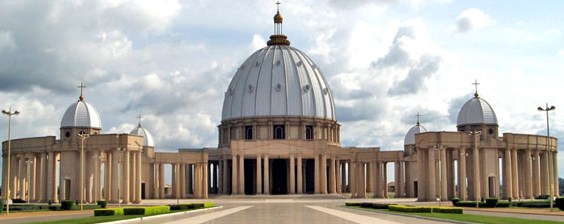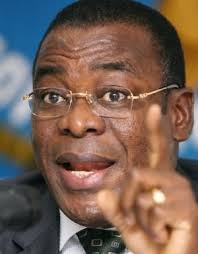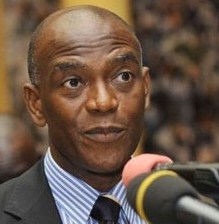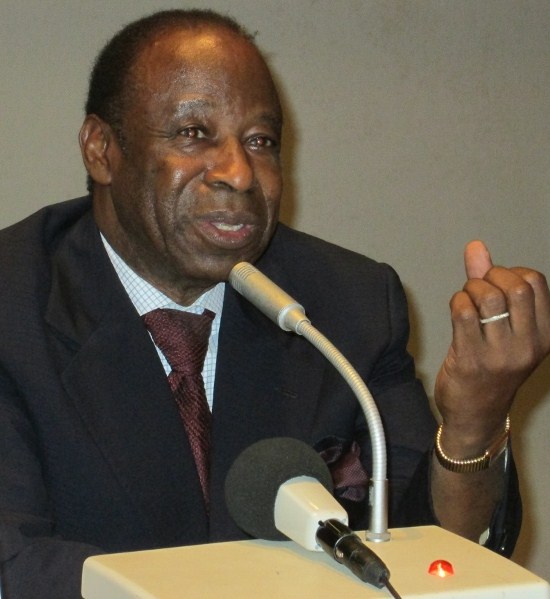Cote d’Ivoire hopes for a peaceful presidential election
BY JIBRIL TURE
Ivorian citizens will go to the polls this fall to elect a new president or re-elect the sitting president, Alassane Ouattara, as well as other national and local officials amid hope that the violent aftermath of the 2010 presidential election is a thing of the past.
The emotional and material scars of the quasi-civil war that followed the 2010 Ivorian presidential election which then-sitting president, Laurent Gbagbo, lost but refused to step down, are still all-too visible. So it came as no surprise when now-sitting president, Alassane Ouattara, after announcing his bid to run for a second term this past Wednesday, told Abidjan.net, an on-line news outlet in Abidjan: “I would like to seize this occasion to say that the October 25, 2015 election is important for our country, for the democratic process, and to turn the page of the crisis that we saw in 2010.” The Ivorian head of state added: “It’s my wish that this be a peaceful one, and that Ivorians are able to cast their votes with serenity and the results are accepted by all.”
You may also want to read: The stage is set for a new presidential election in Cote d’Ivoire
Despite the vicious post-election shooting war that claimed more than 3000 lives in 2011, democracy has been given a chance to flourish under the Ouattara’s administration, so much so that several other candidates are poised to challenge the sitting president on October 25th.
President Ouattara is running under the banner of the very political coalition that elected him to the presidency five years ago, the Rally of Houphouetists for Democracy and Peace (RHDP), which consists of his own Rally of the Republicans (RDR) and the Democratic Party of Cote d’Ivoire (PDCI) headed by former President Henri Konan Bedie. But Ouattara’s securing the backing of the PDCI didn’t come without some infighting among PDCI’s members, especially the youth wing of the party.
You may also want to read: President Ouattara’s express bio
While President Ouattara was only the second contender to formally announce his candidacy on Wednesday, on the heal of the announcement, Monday, of a lesser-known candidate, Eloi Bolou Gouali, several heavyweights of the Ivorian political elite are expected to jump in the race imminently. They include Pascal Affi N’Guessan, former prime minister and head of a faction of the main opposition party, former President Gbagbo’s Ivorian Popular Front (FPI); former speaker of the parliament, Mamadou Koulibaly, the outspoken founder of a new party, LIDER; and veteran diplomat, former foreign minister and chairman of the African Union, Amara Essy, among others.
PASCAL AFFI N’GUESSAN
Though Affi N’Guessan (as he is more often referred to) was not a novice in politics in January 2000, that was the year he assumed real political power at the national, executive level, by becoming Minister of Industry and Tourism in the new government that followed the 1999 military coup that removed then-President Henri Konan Bedie from power. He later served as campaign manager for his long-time friend Laurent Gbagbo who won the 2000 presidential election. N’guessan was later elected chairman of the FPI, and also served as the country’s prime minister until Gbagbo lost power following the 2010 election won by President Ouattara. Following President Gbagbo’s arrest in 2011, N’Guessan and other members of the former president’s entourage were arrested. The former prime minister was held in detention in the northern town of Bouna.
You may also want to read: Exclusive interview with Cote d’Ivoire’s president Laurent Gbagbo
MAMADOU KOULIBALY
Mamadou Koulibaly, an economist by training, won a seat in parliament in 2000 under the banner of former president Laurent Gbagbo’s Popular Front of Cote d’Ivoire. In 2001, he rose to the legislative body’s highest office, becoming a hard-line speaker close to the party’s chairperson, the first lady Simone Gbagbo, and the president himself. He vehemently denounced the 2003 French-brokered landmark Lina-Marcousis accord aimed at ending the political stalemate that resulted from the aborted September 19, 2002 coup against then-president Laurent Gbagbo. Though from the north like then-opposition figure—now president of Cote d’Ivoire—Alassane Ouattara, Koulibaly is said to despise the president. He broke ranks with his FPI comrades and founded his own political party in 2011, with the sexy name of LIDER, Liberty and Democracy for the Republic.
You may also want to read: The rise and fall of Laurent Gbagbo
AMARA ESSY
This is definitely one of Côte d’Ivoire’s finest diplomats. He served as the country’s Ambassador to the United Nations from 1981 to 1990, becoming in 1990 president of the United Nations Security Council. Then his diplomatic career blossomed as he became Minister of Foreign Affairs the following year, served as president of the 49th session of the U.N. General Assembly (1994-1995), later rose to the rank of Minister of State, a higher level in the French-style system of government (1998). Having lost his position following the December 1999 coup, he was elected Secretary-General of the Organization of African Unity in July 2001, with the lofty responsibility of leading the effort to transform the organization into a new, more viable entity, the African Union, within a year. After serving as interim chairman of the African Union until July 2002, Amara Essy, who wanted to assume the position of chairman, had to step down, as the heads of state chose one of their former colleagues, former Malian president Alpha Oumar Konare, for the job.
You may also want to read: How the whole world nearly failed to stop Gbagbo
Neither of these potential presidential candidates has yet to publicly discuss their political agendas, barely ten weeks from the election date of October 25, 2015—not an atypical state of affairs in African politics. Once their agendas—and those of other candidates are known—you will read about them right here.







